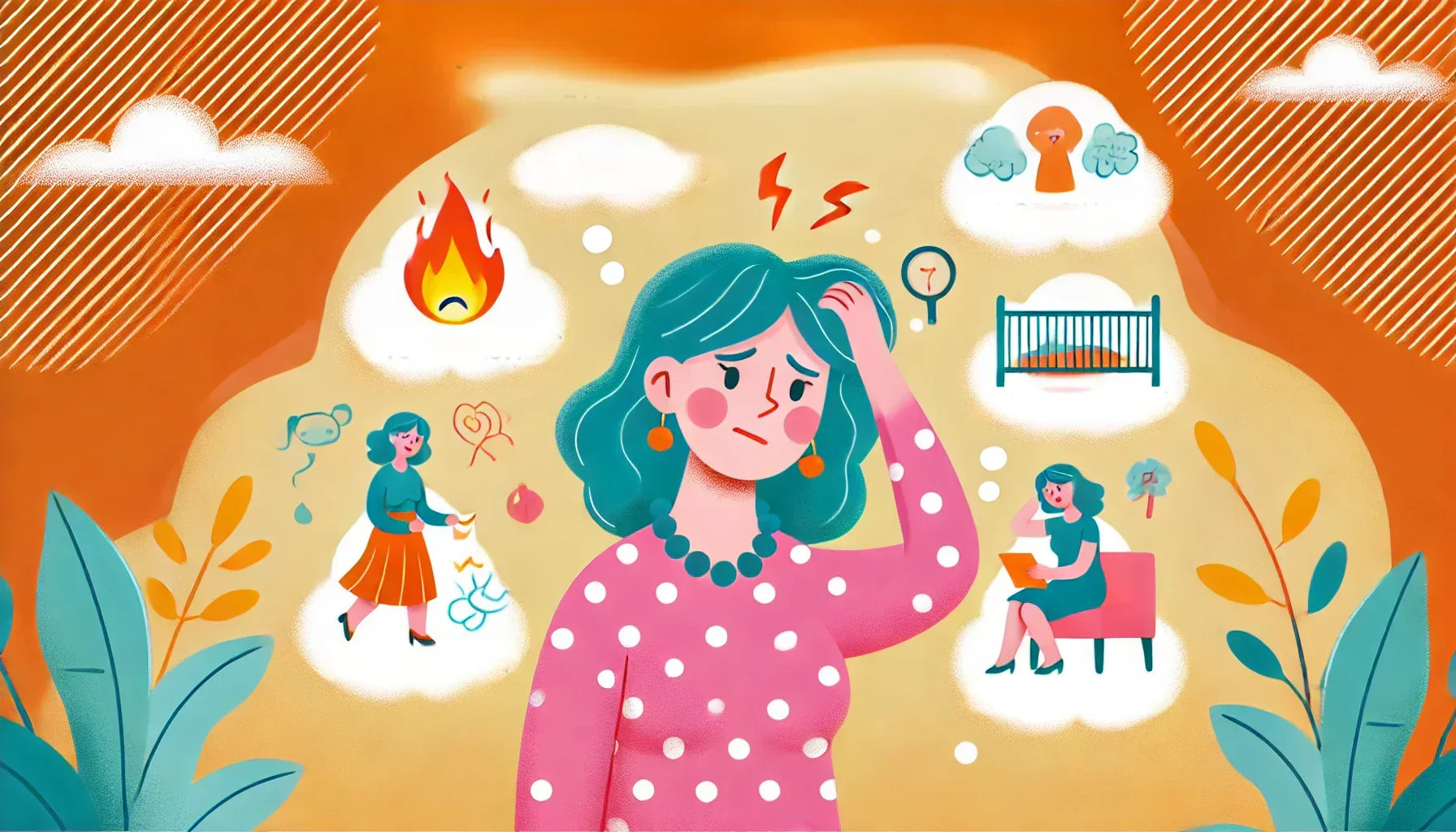Menopause Symptoms: What Every Woman Needs to Know

Menopause is a natural stage in a woman’s life, but it often comes with changes that can feel overwhelming. While some women experience mild symptoms, others go through significant shifts that affect their daily routines. Understanding menopause symptoms and how to manage them can make this transition easier.
What is Menopause?
Menopause marks the end of a woman’s reproductive years, typically occurring between the ages of 45 and 55, with the average age being 51. It is officially diagnosed after 12 consecutive months without a menstrual period. Before menopause, women go through perimenopause, a transitional stage where hormone levels fluctuate, leading to noticeable symptoms.
The primary cause of menopause is a decline in estrogen and progesterone—two hormones that regulate many functions in a woman’s body. These hormonal changes trigger physical and emotional symptoms that can vary from person to person.
According to a study published in The Journal of The North American Menopause Society, menopause-related hormonal shifts can affect metabolism, bone density, and heart health, emphasizing the need for proactive health management.
Common Menopause Symptoms
-
Irregular Periods – Your cycle may become unpredictable before stopping completely.
-
Hot Flashes & Night Sweats – Sudden heat surges can cause sweating and discomfort, often occurring at night.
-
Mood Swings & Anxiety – Hormonal shifts can lead to irritability, sadness, or increased anxiety.
-
Sleep Problems (Insomnia) – Many women struggle with falling or staying asleep due to hormonal imbalances.
-
Vaginal Dryness & Discomfort – Estrogen decline can cause dryness, irritation, and pain during intimacy.
-
Low Libido – Many women experience a decrease in sexual desire.
-
Weight Gain & Slower Metabolism – Hormonal changes make it easier to gain weight, especially around the belly.
-
Brain Fog & Memory Issues – Some women struggle with forgetfulness and concentration.
-
Joint & Muscle Pain – Estrogen helps maintain joint and muscle health; its decline can lead to aches and stiffness.
-
Hair Thinning & Skin Changes – Lower estrogen levels can lead to hair shedding and drier skin.
Menopause at 50: What to Expect
For many women, menopause happens around age 50, and symptoms may become more noticeable. These can include:
-
More frequent hot flashes and night sweats
-
Increased weight gain, especially around the midsection
-
A higher risk of osteoporosis due to decreasing bone density
-
Mood swings and heightened anxiety
Lower estrogen levels at this stage also raise the risk of heart disease, making heart health a priority.
Post-Menopause Symptoms
After 12 months without a period, a woman is considered postmenopausal. Some symptoms may fade, but others, like vaginal dryness, bone loss, and weight gain, can persist. Estrogen levels remain low, so a healthy lifestyle is essential for long-term well-being.
Managing Menopause Symptoms
1. Lifestyle Changes
-
Eat a balanced diet rich in calcium, vitamin D, and protein.
-
Exercise regularly to support weight control and bone strength.
-
Stay hydrated to combat dry skin and maintain energy levels.
-
Limit caffeine, alcohol, and spicy foods to reduce hot flashes.
2. Natural Remedies
-
Soy-based foods (like tofu and soy milk) contain phytoestrogens, which may help balance hormones.
-
Herbal supplements like black cohosh, red clover, and maca root may offer symptom relief.
-
Flaxseeds can support hormone balance and heart health.
3. Hormone Replacement Therapy (HRT)
HRT can help alleviate severe menopause symptoms, but it’s important to discuss potential risks and benefits with a healthcare provider.
4. Stress Management
-
Practice relaxation techniques like meditation, yoga, or deep breathing.
-
Follow a consistent bedtime routine to improve sleep quality.
-
Engage in hobbies and activities that bring joy and relaxation.
Final Thoughts
Menopause is a major life transition, but with the right approach, it doesn’t have to be a struggle. Understanding common symptoms, recognizing what to expect at 50, and learning how to manage post-menopause symptoms can help you feel empowered rather than overwhelmed.
By maintaining a healthy lifestyle, exploring treatment options, and seeking medical advice when necessary, women can embrace menopause as a new chapter of life filled with strength and wisdom.
If you’re struggling with menopause symptoms, don’t hesitate to consult a healthcare professional for personalized support.





